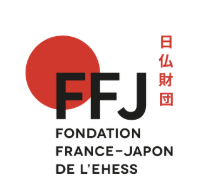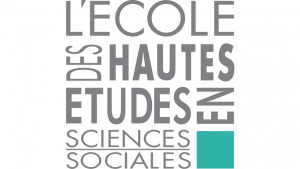Center for French-Japanese Advanced Studies in Paris Research Fellowships
FFJ Fellowship Program Call for Applications
The core objective of the fellowships of the Fondation France-Japon (FFJ) at EHESS is to lead to a close collaboration between the fellow, FFJ, and its partner. The FFJ Fellowships enable the fellows to pursue their research work, according to the research project they presented in their application with objectives specific to their stay in Paris (comparative analysis, access to French resources, etc.). They will benefit from the large network of researchers in social and human sciences, as well as the international and interdisciplinary environment of the Parisian academic institutions. Besides, the collaboration with strategic and research departments of the partner will be an excellent opportunity for them to access to a network of extra-academic experts. The fellows are hosted at EHESS in Paris in a shared office; they benefit from administrative assistance, and have access to meeting rooms and libraries.
2020 FFJ/Air Liquide Fellowship "Visioning the Future of Human-Machine Relationships"
In order to trust and use data and technologies such as artificial intelligence and robots, (1) research on philosophical inquiry of the concepts such as intelligence, autonomy and dignity, (2) research based on concrete case studies such as medicine, care, mobility, service industry, and security, (3) development of trustworthy technology systems such as privacy enhancing technologies and fairness-aware systems, and (4) research that linking them together to figure out future visions of human-machine relationships are important.
The purpose of the Air Liquide fellowship within the FFJ entitled “Visioning Human-Machine Relationships: Collaborative researches between Japan and France” is to better assess the human-machine relationships in different social, institutional, demographical and cultural contexts. France and Japan are indeed characterized by common points such as high standards of living and human development indices (HDI), sluggish growth rate of the GDP, or well developed health care systems. They are also different in various regards such as demography, immigration policies, social cleavages, the labor dynamics (e.g. labor shortage vs. mass unemployment), or the membership of an integrated community, the EU vs a form of insularity, the attitude to nature and machines. It is important to understand the origin of this diverging trends but also the commonalities in order to identify possible collaboration between France and Japan.
2020 FFJ/Valeo Fellowship “Innovative Technologies for a Sustainable Mobility”
Up until the beginning of the 1990s, Japan’s innovation system has allowed it to catch up with European, then American, economies. However, as of the 2000s, Japan has been criticized for its inability to generate innovation at the level of the “new economy”, especially in the fields of information and communication technologies or biotechnologies. After a period of reforms, it is now possible to observe the emergence of a new wave of innovation in sectors that traditionally constitute the strength of the Japanese economy such as the car industry or robotics, but also in other domains considered as priorities such as sustainable development.
The goal of the Valeo Fellowship “Innovative technologies for a sustainable mobility” is to analyze the technologies, the actors – private and public as well as the collaborations between them – and the institutional and financial means that may contribute to the emergence of breakthrough innovation in the field of sustainable mobility. The Valeo Fellowship focuses on the following technologies:
- Mobility technologies that may contribute to a new generation of robotics
- Upstream and downstream technologies in the car industry that may contribute to the improvement of energy balance and to enhanced comfort
- Technologies that may help improve the mobility of older generations in the context of population aging.
- Connectivity that are essential to design, implement and maintain a comprehensive IT infrastructure related to a wide range of mobility services (new axis for 2019)
Valeo Fellows can use diverse methodologies, from quantitative analysis of patent data to more qualitative perspectives relying on case studies. We encourage any study on the links between scientific research and industrial applications, in relation with social needs, on the convergence of technologies, and on the potential emergence of new industries.
Responsibilities of the fellow
The fellow is expected to take part in the scientific activities of FFJ in a spirit of exchange and mutual development with the other FFJ research fellows. The Centre places paramount importance to the capacity of the fellow to bond with other fellows and initiate collaborations with researchers in the Paris region, and in Europe.
The fellow is required to:
- participate in regular work meetings with the CEAFJP team and to meetings with its institutional partners and collaborators;
- submit a Research Note (2 pages in English) two months before the beginning of the fellowship in order to present his or her research project;
- organize a workshop at the end of the fellowship;
- submit a Discussion Paper (25 to 50 pages in English) at the end of the fellowship in order to share the main findings of his or her research work in Paris.
The Fellowship Grant
The fellowship may last 5 or 10 months, between 1 January 2020 and 31 March 2021, depending on the fellow’s availability.
The fellow will receive a grant, designed to cover his or her expenses related to transport and his or her stay in Paris on the one hand, and on the other hand the expenses directly linked to the realization of his or her research work. This grant can be combined with other sources of funding, on condition that the fellow is located in Paris.
Eligibility and Evaluation
The call for applications is open to junior or senior distinguished international scholars, as well as government and business professionals. Applicants must be able to prove their capacity to conduct a research, but they are not required to hold a Ph.D.
After the call is closed, the Scientific Committee of FFJ will examine the applications and select the laureate. The main criteria of evaluation are the scientific quality of the project, but also its viability and the legitimacy of staying in Paris in the framework of the project. The applications will be examined regardless of the applicants’ age, nationality, place of residence, or country of their affiliated institution.
The Committee will announce the results to the applicants in July 2019 before the public announcement.
Application
The application files are required to include:
- the application form;
- a curriculum vitae including a list of publications;
- two recommendation letters for applicants who earned their doctorate less than five years ago.
All the documents are to be sent by email to applications_ffj@ehess.fr on 31 May 2019 midnight (French time) at the latest. Further information is available via the same email address mentioned above.

